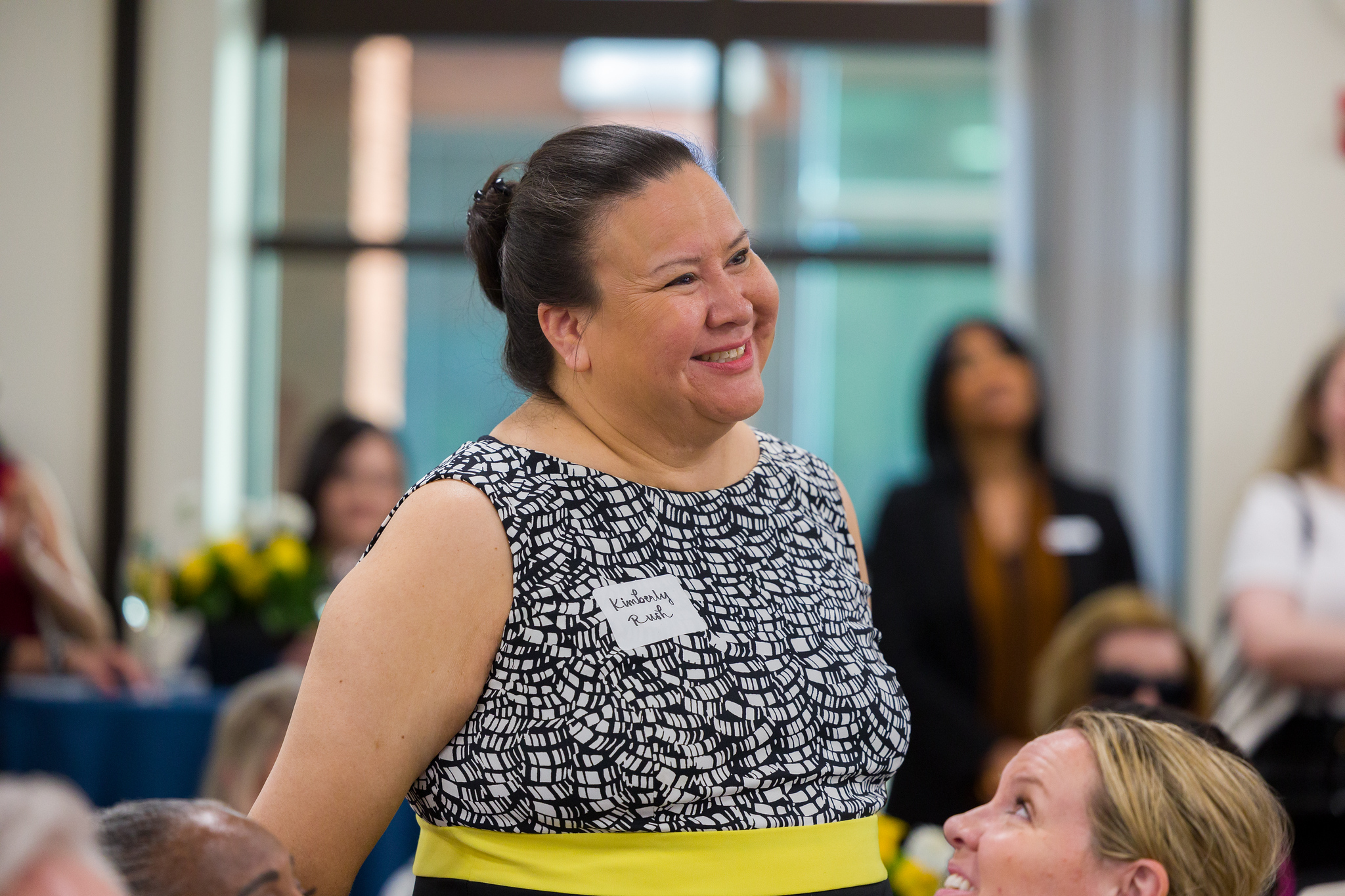Getting ahead is not easy. And for Kimberly Rush, the difference was a debit card for buying gas.
She was at the end of more than two decades working in restaurants and food service, roles that significantly changed when she had to isolate during the pandemic because of treatments for leukemia. She did not have paid time off or sick leave.
“I worked every single weekend, every single holiday there was,” she said.
That made it hard to split time among her oncology appointments, her job at a Safeway deli, and a cable-wiring program at Mesa Community College in Phoenix, a 45-minute drive from where she lived.
The cost of making a change through workforce training was high, and not only in dollars and cents. One night she slept in a car to make a doctor’s appointment, work and class fit within her commute. She put icepacks in an airplane pillow to help her with the desert heat.
“I found myself just going on empty, physically, spiritually, emotionally,” Kimberly said.
Every step forward was heavy, but she had help making each one because her training was through Fresh Start Women’s Foundation, a Women in Apprenticeship and Nontraditional Occupations (WANTO) program grantee.
Those benefits included job fairs so she could efficiently meet employers, interview prep so she felt confident talking with companies like Pacific Scientific (which hired her and recently promoted her), and a debit card so she could pay for those long drives.
“Having just that card for gas and groceries, it gave you a little bit of a cushion,” Rush said. “I don’t have to worry about this right now.”
Since the Biden-Harris administration started, the Department of Labor has recommitted its grant programs toward thoughtful pathways to good jobs that help workers get ahead—like the WANTO grant that helped Kimberly.
We use our dollars to build up Opportunity Infrastructure, the interconnected systems that work best when they get every worker to a good job. And we use our Good Jobs Principles to ensure department-funded projects guide workers to jobs with fair pay, safe workplaces and life-changing benefits like healthcare, retirement and childcare.
In 2024, we have published more than $1.2 billion in discretionary funding opportunities built around these ideas. These grants include $6 million more in WANTO awards, including another grant implemented by Fresh Start.
Other investments in Good Jobs and Opportunity Infrastructure include:
Many of these programs are not new. Several are decades, if not generations, old. The difference is priorities: building training and work opportunities that work for workers and their families.
Kimberly feels that difference. Thanks to WANTO, she is no longer just getting by. She works for good pay and great benefits while doing work she loves, with plenty of time to plan things like an upcoming RV trip with her family to Bearizona, a drive-thru wildlife park.
“It’s like I have a full-time life and a part-time job,” she said. “That right there is an automatic pay raise.”
Nick Beadle is policy counselor for the Good Jobs Initiative



